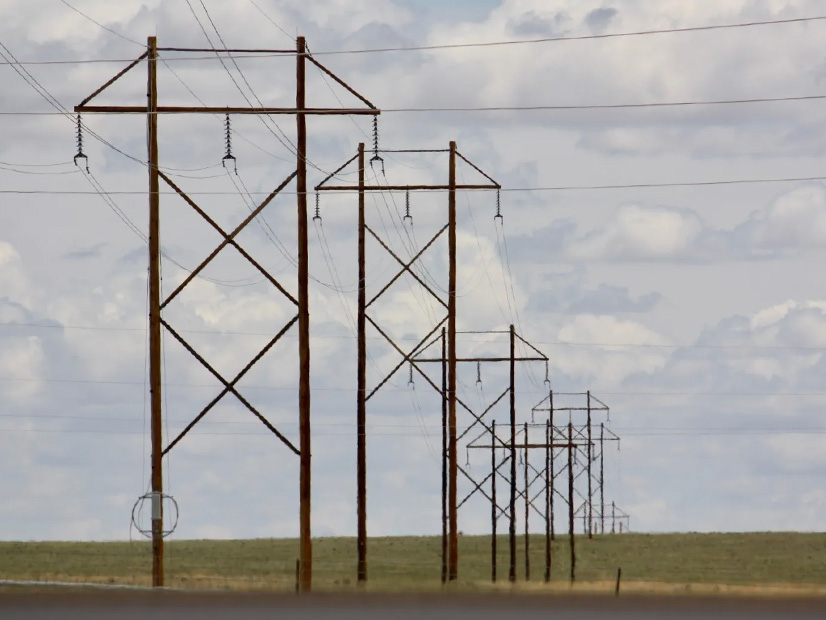MISO and SPP have asked FERC for a temporary departure from sections of their joint operating agreement to be able to conduct a more comprehensive interregional planning study to land on mutually beneficial transmission projects.
MISO and SPP filed the limited waiver request Jan. 15, asking for a one-time reprieve from a multiyear modeling requirement and a restrictive benefit valuation directive for their 2024/25 interregional planning cycle (ER25-943). The pair of grid operators said they don’t want to be constrained by certain sections of their joint operating agreement (JOA) when conducting their in-progress Coordinated System Plan (CSP) study and requested a response from FERC by March 15, 2025.
MISO and SPP said current JOA wording limits them to using only the value of avoided regional projects to measure the reliability and public policy benefits of interregional projects. The JOA also requires MISO and SPP, when conducting a CSP, to use multiyear modeling, which the RTOs interpret to mean using multiple model years, like two, five and 10 years out.
For their 2024/25 CSP, MISO and SPP instead want to use several differing scenarios all 10 years into the future using a combination of their respective 2034 modeling. They said they’re hopeful the study will turn up more potential projects than a broad-brush study with pit stops at five, 10 or 15 years.
MISO and SPP added that 2034 is a pivotal point, on the other side of many utilities and states’ 2030 decarbonization goals and on the road to bigger net-zero goals.
MISO and SPP also said establishing the reliability value of a project solely on its ability to avoid regional projects likely hamstrings them from analyzing projects’ usefulness in other areas, like expanding interregional transfer capability or standing the grid up to weather extremes.
“The requirement to value reliability or public policy interregional projects as the cost avoidance of pre-existing regional projects will hinder such projects from being proposed based on additional or alternative benefits. It is likely that reliability needs will be identified along the seam in the analysis, yet not observed in prior regional processes due to modeling differences or because the planned study offers a more robust evaluation of the 10-year horizon,” MISO and SPP explained.
MISO and SPP said they’re casting a wider net for interregional projects in the current CSP and want to use comprehensive reliability, economic and transfer analyses using 10-year forward modeling. They said using detailed, long-term views will help them move beyond solely “studying and resolving transmission issues” and better line up with FERC Order 1920.
This CSP would prioritize “immediately actionable enhancements,” MISO and SPP said, like upgrades in existing rights-of-way, terminal equipment, transformers or greenfield development that might not be contemplated in regional studies.
MISO and SPP decided months ago that this year’s CSP “would not yield different results” from fruitless past studies unless it considers “near-term upgrades that incrementally enhance transfer capability and yield multiple benefits across the RTOs’ respective footprints without limiting upgrades to the replacement of regional projects.”
“The RTOs believe that, unless the study scope is broadened as proposed, the 2024/25 CSP study would become a futile, pro forma exercise that would not result in recommended interregional projects,” MISO and SPP said. “History has proven that there have been high-potential projects considered, but ultimately not recommended, as cost shared interregional projects in the MISO-SPP CSP studies, and many projects have not been able to pass the interregional project criteria as narrowly defined in the MISO-SPP JOA.”




